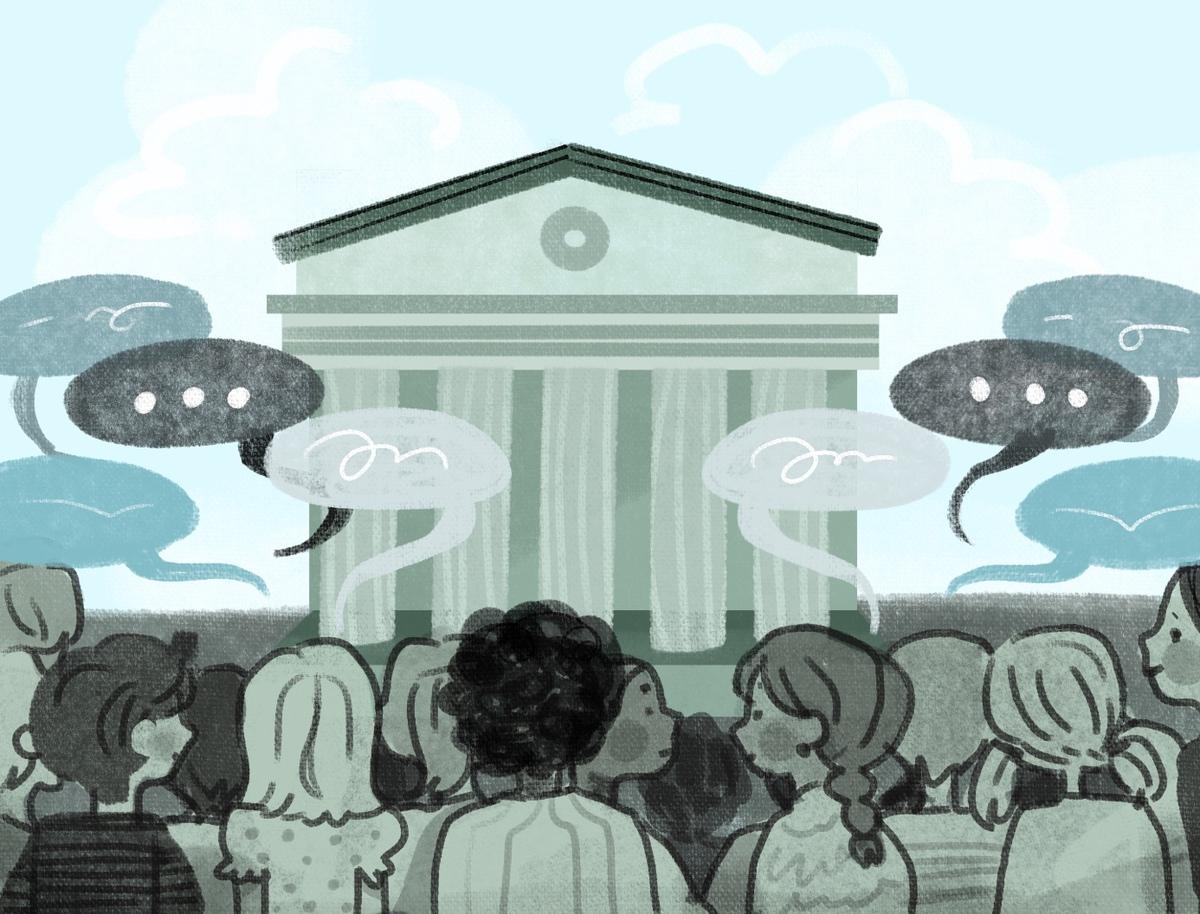UCLA community members remain concerned over uncertainty of DACA ruling
(Katelyn Dang/Illustrations Director)
By Anushka Chakrabarti
Oct. 9, 2021 8:33 p.m.
UCLA community members reflected on the uncertainty surrounding the Deferred Action for Childhood Arrivals program and the need for a more permanent solution following the Biden administration’s attempts to appeal a recent ruling deeming DACA illegal.
In July, a Texas federal judge, Andrew Hanen, ruled that DACA was illegal, barring any new applications from being processed, but current recipients were not impacted. On Sept. 10, the Biden administration appealed Hanen’s ruling.
[Related: UC community members react to DACA ruling, remain hopeful for future]
The DACA program was initially created under the Obama administration using an executive branch memorandum. The program was intended to serve as a temporary pathway for undocumented individuals living in the United States.
Hanen ruled DACA illegal because it was a violation of the Administrative Procedure Act, which outlines the requirements necessary for lawmaking.
[Related: US District Court judge rules DACA unlawful, casts uncertainty on program’s future]
In 2018, 600 to 700 UCLA students were undocumented. Currently, around 700,000 individuals are protected under DACA in the country.
The appeal from the Biden administration will first go to the federal intermediate court or the appellate level court that governs Texas, called the Fifth Circuit Court of Appeals, said Ahilan Arulanantham, a faculty co-director of the Center for Immigration Law and Policy at the UCLA School of Law.
“Historically, the court has been fairly hostile to both immigration cases or cases involving the rights of immigrants,” they said. “On this particular question about the president’s power to grant reprieve for certain sets of people and get them work authorization, it has also been fairly hostile.”
The history of hostility means there is no guarantee that the court will rule in favor of DACA, Arulanantham added.
Additionally, on Sept. 28, the Biden administration released a proposed rule that would help protect the rights of immigrants who are currently facing uncertainty because of questions about DACA’s legality.
“I think the proposed regulation cures the problem … with the Texas judge. … I think it does so by the process and also does so because it’s written slightly differently than DACA,” said Hiroshi Motomura, who is also a faculty co-director of the Center for Immigration Law and Policy.
The regulation from the Department of Homeland Security can help to create a greater sense of security for DACA recipients while trying to fortify the protections, said Anthony Ng, the Dream Resource Center director at the UCLA Labor Center.
“It’s been just a very rocky and tumultuous road for DACA recipients – I’m a DACA recipient myself,” Ng said.
Ng added that while the steps for DACA show a stride in the right direction, it only helps those who already have DACA.
“It doesn’t help the folks who never qualified for DACA, right, because either they didn’t meet the requirements, or because of the kind of back and forth … in terms of who can apply (and) who can’t,” Ng said.
Another solution to the uncertainty surrounding DACA would be legislation that supported the program, Arulanantham said.
“All of this litigation could go away if Congress passed the DREAM Act and (it) passed the House. … It is now in the Senate and caught up in this fight over whether the bill would need two-thirds of the Senate or instead just a simple majority to pass,” they added.
The DRC works with undocumented youth, discussing issues faced by the community and working toward solutions, Ng said.
Everyone can help contribute to the larger situation by taking small actions such as calling Congress members and organizing events and mobilizing on social media, they said.
“I think everyone has a role in this particular moment … when it comes to moving tenable policies that make (an) impact on the lives of communities,” Ng said.
